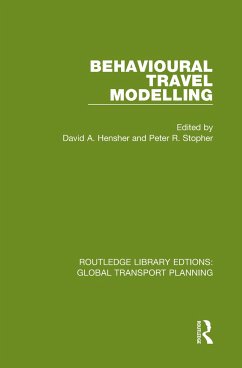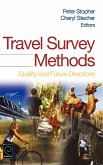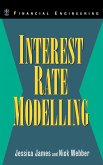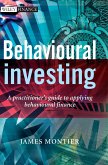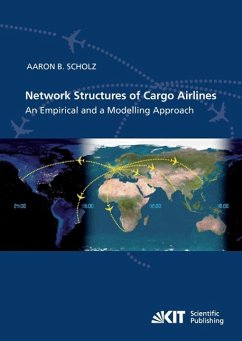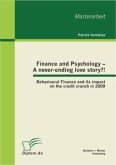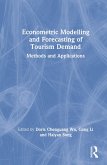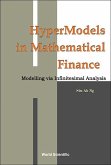Behavioural Travel Modelling
Herausgeber: Hensher, David A.; Stopher, Peter R.
Behavioural Travel Modelling
Herausgeber: Hensher, David A.; Stopher, Peter R.
- Gebundenes Buch
- Merkliste
- Auf die Merkliste
- Bewerten Bewerten
- Teilen
- Produkt teilen
- Produkterinnerung
- Produkterinnerung
Originally published in 1979, this study deals on a fully comprehensive level with both passenger and freight travel. The 40 chapters deal with an extensive range of related topics, including equilibrium modelling, theoretical and conceptual developments in demand modelling, goods movement and forecasting and policy. It outlines approaches to understanding travel behaviour, which move beyond the individual choice theory towards a broader consideration of activities.
Andere Kunden interessierten sich auch für
![Travel Survey Methods Travel Survey Methods]() Peter Stopher / Cheryl Stecher (eds.)Travel Survey Methods269,99 €
Peter Stopher / Cheryl Stecher (eds.)Travel Survey Methods269,99 €![Interest Rate Modelling Interest Rate Modelling]() Jessica JamesInterest Rate Modelling200,99 €
Jessica JamesInterest Rate Modelling200,99 €![Behavioural Investing Behavioural Investing]() James MontierBehavioural Investing96,99 €
James MontierBehavioural Investing96,99 €![Network Structures of Cargo Airlines - An Empirical and a Modelling Approach Network Structures of Cargo Airlines - An Empirical and a Modelling Approach]() Aaron Bernhardt ScholzNetwork Structures of Cargo Airlines - An Empirical and a Modelling Approach47,00 €
Aaron Bernhardt ScholzNetwork Structures of Cargo Airlines - An Empirical and a Modelling Approach47,00 €![Finance and Psychology ¿ A never-ending love story?! Behavioural Finance and its impact on the credit crunch in 2009 Finance and Psychology ¿ A never-ending love story?! Behavioural Finance and its impact on the credit crunch in 2009]() Patrick KemtzianFinance and Psychology ¿ A never-ending love story?! Behavioural Finance and its impact on the credit crunch in 200927,99 €
Patrick KemtzianFinance and Psychology ¿ A never-ending love story?! Behavioural Finance and its impact on the credit crunch in 200927,99 €![Econometric Modelling and Forecasting of Tourism Demand Econometric Modelling and Forecasting of Tourism Demand]() Econometric Modelling and Forecasting of Tourism Demand174,99 €
Econometric Modelling and Forecasting of Tourism Demand174,99 €![Hypermodels in Mathematical Finance: Modelling Via Infinitesimal Analysis Hypermodels in Mathematical Finance: Modelling Via Infinitesimal Analysis]() Siu-Ah NgHypermodels in Mathematical Finance: Modelling Via Infinitesimal Analysis202,99 €
Siu-Ah NgHypermodels in Mathematical Finance: Modelling Via Infinitesimal Analysis202,99 €-
-
-
Originally published in 1979, this study deals on a fully comprehensive level with both passenger and freight travel. The 40 chapters deal with an extensive range of related topics, including equilibrium modelling, theoretical and conceptual developments in demand modelling, goods movement and forecasting and policy. It outlines approaches to understanding travel behaviour, which move beyond the individual choice theory towards a broader consideration of activities.
Hinweis: Dieser Artikel kann nur an eine deutsche Lieferadresse ausgeliefert werden.
Hinweis: Dieser Artikel kann nur an eine deutsche Lieferadresse ausgeliefert werden.
Produktdetails
- Produktdetails
- Verlag: Routledge
- Seitenzahl: 872
- Erscheinungstermin: 12. Mai 2021
- Englisch
- Abmessung: 240mm x 161mm x 51mm
- Gewicht: 1456g
- ISBN-13: 9780367740870
- ISBN-10: 0367740877
- Artikelnr.: 69938290
- Herstellerkennzeichnung
- Libri GmbH
- Europaallee 1
- 36244 Bad Hersfeld
- gpsr@libri.de
- Verlag: Routledge
- Seitenzahl: 872
- Erscheinungstermin: 12. Mai 2021
- Englisch
- Abmessung: 240mm x 161mm x 51mm
- Gewicht: 1456g
- ISBN-13: 9780367740870
- ISBN-10: 0367740877
- Artikelnr.: 69938290
- Herstellerkennzeichnung
- Libri GmbH
- Europaallee 1
- 36244 Bad Hersfeld
- gpsr@libri.de
David A. Hensher was founding Director of the Institute of Transport and Logistics Studies (ITLS) at the University of Sydney, Australia. Peter R. Stopher is Emeritus Professor at ITLS, University of Sydney, Australia.
1. Behavioural Travel Modelling 2. New Approaches to Understanding Travel
Behaviour: The Human Activity Approach 3. Urban-Travel Linkages: A Review
5. An Activity Model and Its Validation 5. New Approaches to Understanding
Traveller Behaviour 6. Six Notes of Equilibrium and their Implications for
Travel Modelling Examined in an Aggregate Direct Demand Framework 7.
Equilibrium and Transport System Dynamics 8 An Equilibrium Model for
Integrate Regional Development 9. Equilibrium Modelling 10. Market
Segmentation: A Tool for Transport Decision-Making 11. Market Segmentation
in Behavioural Travel Modelling 12. Consumer Segmentation 13. Quantitive
Methods for Analysing Travel Behaviour of Individuals: Some Recent
Development 14. Some Developments in Transport Demand Modelling 15.
Measuring the Value of Travel Time Savings from Demand Functions 16. A
Model Based on Non-Homogeneity in Allocation Problems 17. Theoretical and
Conceptual Developments in Demand Modelling 18. The Role of Disaggregate
Modelling Tools in the Policy Arena 19. Roles of Behavioural Traveller
Models in Urban Policy Analysis 20. The Role of Disaggregate Travel Models
in Transport Policy Analysis 21. Values of Time, Modal Split and
Forecasting 22. Behavioural Modelling: An Evaluator's Perspective 23.
Relationship Between Behavioural Models, Evaluation, Forecasting and Policy
24. Urban Goods Movement: Process, Planning Approach and Policy and 25.
Urban Goods Movement: Behavioural Demand Forecasting Procedures 26.
Indicators for Urban Commodity Movements 27. Urban Goods Movement: Research
Review 28. The Applicability of Behavioural Modelling to the Analysis of
Goods Movement 29. Behavioural Modelling, Accessibility, Mobility and Need:
Concepts and Measurement 30. Disaggregate Travel and Mobility Choice Models
and Measures of Accessibility 31. Mobility, Accessibility and Travel
Impacts of Transportation Programs for the Elderly and Handicapped 32.
Behavioral Modelling, Accessibility, Mobility and Travel Needs 33.
Application of Psychological Measurement and Modelling to Behavioural
Travel-Demand Analysis 34. Attitude-Behaviour Relationships in Travel
Demand Modelling 35. The Development of Attitudinal Modelling Approaches in
Transport Research 36. Attitudes, Attitudinal Measurement, and the
Relationship Between Attitudes and Behaviour 37. Evaluating the Social and
Environmental Impacts of Transport Investments 38. Behavioural Modelling
and the Evaluation of Social and Environmental Impacts of Transport
Investment 39. Summary of the Conference Findings and Recommendations
Behaviour: The Human Activity Approach 3. Urban-Travel Linkages: A Review
5. An Activity Model and Its Validation 5. New Approaches to Understanding
Traveller Behaviour 6. Six Notes of Equilibrium and their Implications for
Travel Modelling Examined in an Aggregate Direct Demand Framework 7.
Equilibrium and Transport System Dynamics 8 An Equilibrium Model for
Integrate Regional Development 9. Equilibrium Modelling 10. Market
Segmentation: A Tool for Transport Decision-Making 11. Market Segmentation
in Behavioural Travel Modelling 12. Consumer Segmentation 13. Quantitive
Methods for Analysing Travel Behaviour of Individuals: Some Recent
Development 14. Some Developments in Transport Demand Modelling 15.
Measuring the Value of Travel Time Savings from Demand Functions 16. A
Model Based on Non-Homogeneity in Allocation Problems 17. Theoretical and
Conceptual Developments in Demand Modelling 18. The Role of Disaggregate
Modelling Tools in the Policy Arena 19. Roles of Behavioural Traveller
Models in Urban Policy Analysis 20. The Role of Disaggregate Travel Models
in Transport Policy Analysis 21. Values of Time, Modal Split and
Forecasting 22. Behavioural Modelling: An Evaluator's Perspective 23.
Relationship Between Behavioural Models, Evaluation, Forecasting and Policy
24. Urban Goods Movement: Process, Planning Approach and Policy and 25.
Urban Goods Movement: Behavioural Demand Forecasting Procedures 26.
Indicators for Urban Commodity Movements 27. Urban Goods Movement: Research
Review 28. The Applicability of Behavioural Modelling to the Analysis of
Goods Movement 29. Behavioural Modelling, Accessibility, Mobility and Need:
Concepts and Measurement 30. Disaggregate Travel and Mobility Choice Models
and Measures of Accessibility 31. Mobility, Accessibility and Travel
Impacts of Transportation Programs for the Elderly and Handicapped 32.
Behavioral Modelling, Accessibility, Mobility and Travel Needs 33.
Application of Psychological Measurement and Modelling to Behavioural
Travel-Demand Analysis 34. Attitude-Behaviour Relationships in Travel
Demand Modelling 35. The Development of Attitudinal Modelling Approaches in
Transport Research 36. Attitudes, Attitudinal Measurement, and the
Relationship Between Attitudes and Behaviour 37. Evaluating the Social and
Environmental Impacts of Transport Investments 38. Behavioural Modelling
and the Evaluation of Social and Environmental Impacts of Transport
Investment 39. Summary of the Conference Findings and Recommendations
1. Behavioural Travel Modelling 2. New Approaches to Understanding Travel
Behaviour: The Human Activity Approach 3. Urban-Travel Linkages: A Review
5. An Activity Model and Its Validation 5. New Approaches to Understanding
Traveller Behaviour 6. Six Notes of Equilibrium and their Implications for
Travel Modelling Examined in an Aggregate Direct Demand Framework 7.
Equilibrium and Transport System Dynamics 8 An Equilibrium Model for
Integrate Regional Development 9. Equilibrium Modelling 10. Market
Segmentation: A Tool for Transport Decision-Making 11. Market Segmentation
in Behavioural Travel Modelling 12. Consumer Segmentation 13. Quantitive
Methods for Analysing Travel Behaviour of Individuals: Some Recent
Development 14. Some Developments in Transport Demand Modelling 15.
Measuring the Value of Travel Time Savings from Demand Functions 16. A
Model Based on Non-Homogeneity in Allocation Problems 17. Theoretical and
Conceptual Developments in Demand Modelling 18. The Role of Disaggregate
Modelling Tools in the Policy Arena 19. Roles of Behavioural Traveller
Models in Urban Policy Analysis 20. The Role of Disaggregate Travel Models
in Transport Policy Analysis 21. Values of Time, Modal Split and
Forecasting 22. Behavioural Modelling: An Evaluator's Perspective 23.
Relationship Between Behavioural Models, Evaluation, Forecasting and Policy
24. Urban Goods Movement: Process, Planning Approach and Policy and 25.
Urban Goods Movement: Behavioural Demand Forecasting Procedures 26.
Indicators for Urban Commodity Movements 27. Urban Goods Movement: Research
Review 28. The Applicability of Behavioural Modelling to the Analysis of
Goods Movement 29. Behavioural Modelling, Accessibility, Mobility and Need:
Concepts and Measurement 30. Disaggregate Travel and Mobility Choice Models
and Measures of Accessibility 31. Mobility, Accessibility and Travel
Impacts of Transportation Programs for the Elderly and Handicapped 32.
Behavioral Modelling, Accessibility, Mobility and Travel Needs 33.
Application of Psychological Measurement and Modelling to Behavioural
Travel-Demand Analysis 34. Attitude-Behaviour Relationships in Travel
Demand Modelling 35. The Development of Attitudinal Modelling Approaches in
Transport Research 36. Attitudes, Attitudinal Measurement, and the
Relationship Between Attitudes and Behaviour 37. Evaluating the Social and
Environmental Impacts of Transport Investments 38. Behavioural Modelling
and the Evaluation of Social and Environmental Impacts of Transport
Investment 39. Summary of the Conference Findings and Recommendations
Behaviour: The Human Activity Approach 3. Urban-Travel Linkages: A Review
5. An Activity Model and Its Validation 5. New Approaches to Understanding
Traveller Behaviour 6. Six Notes of Equilibrium and their Implications for
Travel Modelling Examined in an Aggregate Direct Demand Framework 7.
Equilibrium and Transport System Dynamics 8 An Equilibrium Model for
Integrate Regional Development 9. Equilibrium Modelling 10. Market
Segmentation: A Tool for Transport Decision-Making 11. Market Segmentation
in Behavioural Travel Modelling 12. Consumer Segmentation 13. Quantitive
Methods for Analysing Travel Behaviour of Individuals: Some Recent
Development 14. Some Developments in Transport Demand Modelling 15.
Measuring the Value of Travel Time Savings from Demand Functions 16. A
Model Based on Non-Homogeneity in Allocation Problems 17. Theoretical and
Conceptual Developments in Demand Modelling 18. The Role of Disaggregate
Modelling Tools in the Policy Arena 19. Roles of Behavioural Traveller
Models in Urban Policy Analysis 20. The Role of Disaggregate Travel Models
in Transport Policy Analysis 21. Values of Time, Modal Split and
Forecasting 22. Behavioural Modelling: An Evaluator's Perspective 23.
Relationship Between Behavioural Models, Evaluation, Forecasting and Policy
24. Urban Goods Movement: Process, Planning Approach and Policy and 25.
Urban Goods Movement: Behavioural Demand Forecasting Procedures 26.
Indicators for Urban Commodity Movements 27. Urban Goods Movement: Research
Review 28. The Applicability of Behavioural Modelling to the Analysis of
Goods Movement 29. Behavioural Modelling, Accessibility, Mobility and Need:
Concepts and Measurement 30. Disaggregate Travel and Mobility Choice Models
and Measures of Accessibility 31. Mobility, Accessibility and Travel
Impacts of Transportation Programs for the Elderly and Handicapped 32.
Behavioral Modelling, Accessibility, Mobility and Travel Needs 33.
Application of Psychological Measurement and Modelling to Behavioural
Travel-Demand Analysis 34. Attitude-Behaviour Relationships in Travel
Demand Modelling 35. The Development of Attitudinal Modelling Approaches in
Transport Research 36. Attitudes, Attitudinal Measurement, and the
Relationship Between Attitudes and Behaviour 37. Evaluating the Social and
Environmental Impacts of Transport Investments 38. Behavioural Modelling
and the Evaluation of Social and Environmental Impacts of Transport
Investment 39. Summary of the Conference Findings and Recommendations

